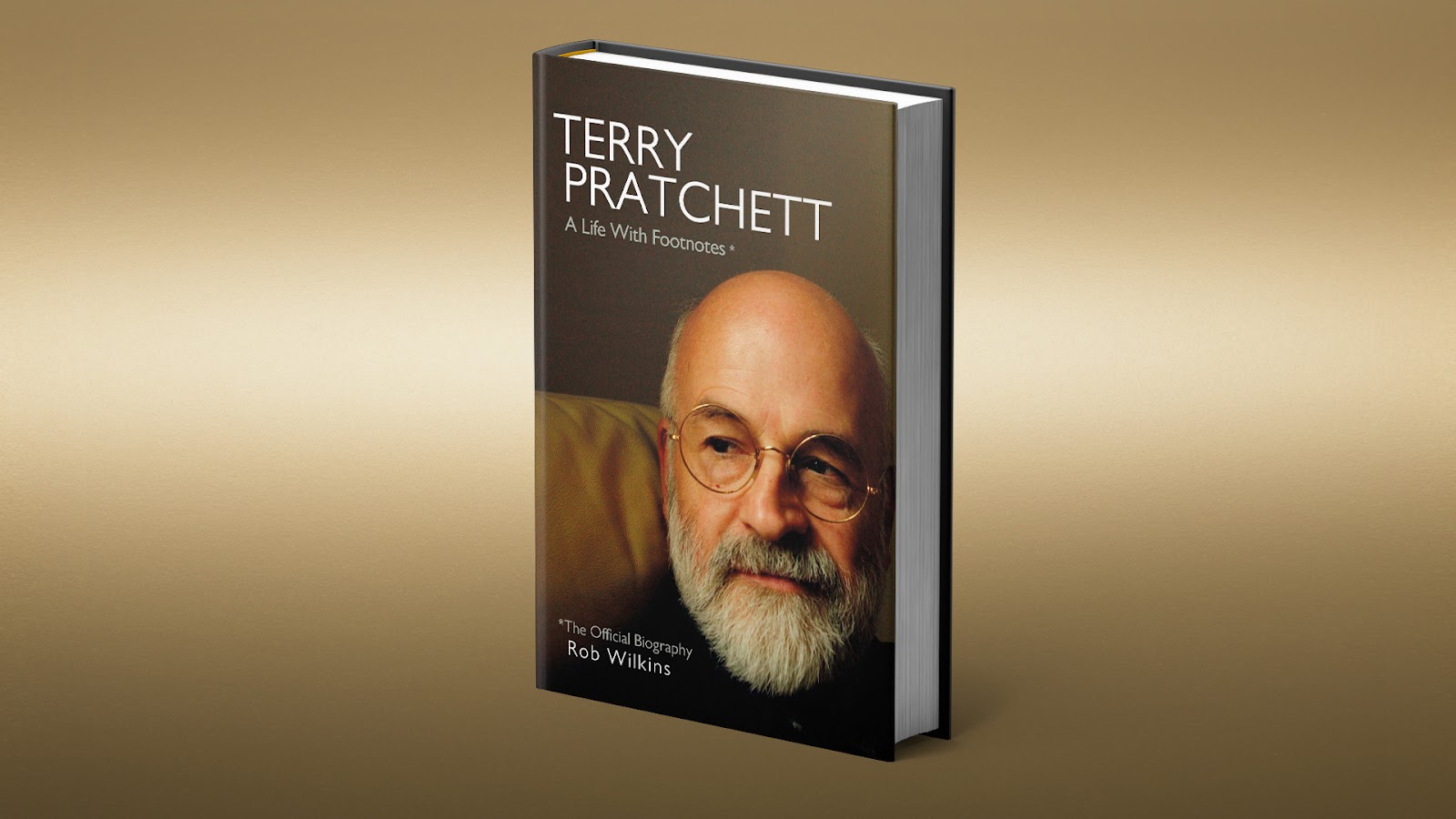Review: Terry Pratchett: A Life in Footnotes
WHEN a six and a half tonne steamer rolled over a computer hard drive peppered with unfinished novels, it appeared to bring Terry Pratchett's literary canon to a conclusive end.
Before he died the author left quite explicit instructions about what was to done with any works in progress and his dying wish was fulfilled some six years ago... at Dorset Steam Fair no less.
But it appears that the one story that Pratchett gave permission to be passed on for posthumous polish was his own.
A newly-released biography by his long-time friend and personal assistant Rob Wilkins draws on the notes for a memoir which the writer had started to pull together after being diagnosed with early onset Alzheimer's.
It's nice to see the finished book strung with excerpts from that collection of recollections, not least because they offer frequent flashes of Pratchett's utterly distinctive voice.
But Wilkins' introduction is honest enough to admit that what had been drawn together was rough and incomplete; the order, the framing, the wry asides are all additions to the outline left behind.
The book also draws on the memories of the writer's family and friends to fill in the gaps, while conceding that confirming everything would be impossible and - in any instance - some of the most impressive anecdotes fall firmly into the category of "too good to check."
Personally I could particularly relate to two sections which put the spotlight on opposite ends of Pratchett's life.
The first being an account of his arrival in local journalism; he landed his first job at a weekly paper - the Bucks Free Press - aged just 17.
I thought the relevant chapters were a wonderful snapshot of a traineeship in a local newsroom and it was a role surprisingly similar to the one I found myself in some 40 years down the track.
It's in fact somewhat sad that the vegetable shows and interviews with anniversary couples which long served as the counterpoint to violent deaths and other hard news were only really jettisoned with the advent of social media a decade or so ago.
Nonetheless Pratchett's accounts of local government reporting in the 1960s still chime very much with my own experience covering the town hall as recently as 18 months ago!
The young hack would sit in on sessions of the Urban District Council "in dread of the inevitable councillor who, even as the interminable session was finally winding up, would rise from his chair to say 'Mr Chairman, if I could just raise one more matter under Any Other Business'."
More poignantly the book's final chapters inevitably turn to the rare form of dementia that Pratchett - by then firmly ensconced as one of the best-selling and most-shoplifted authors around - grappled with in his final years.
His own battle - which he made public within days of diagnosis - took place at the same time as both my grandmothers were struggling with the same illness.
For such a well-known and articulate figure to speak out candidly about a condition which for a long time had been taboo felt hugely significant.
Inevitably reading about his decline in the final stages of the illness was uncomfortable, as I would imagine it would be for any of the many millions of people with first-hand experience of the disease.
Nonetheless the honesty felt important and perhaps admirably the book does deal with what I suppose was always going to be a topic of debate given Pratchett's passionate advocacy for assisted dying. Was the writer himself "assisted"?
Recalling his response to a reporter who was forthright enough to ask this very question, Wilkins was unequivocal. The author had died "quietly and naturally at home with his family around him and his cat curled up at the foot of his bed."
Rather like the Discworld books that made his fortune, the story of Pratchett's own life is immensely funny and thought-provoking and at times entirely poignant.
It captures Pratchett's wit and humanity but doesn't gloss over his flaws. As his old pal Neil Gaiman once put it, the perception that the novelist was "a jolly old elf" rather overlooked the quiet fury that fuelled so much of his output. I was left with the firm impression of a good man with a great sense of humour, but someone who didn't suffer fools gladly.
The complexity of the character on show, the affection with which he's remembered and the books he's left behind certainly give weight to a quote splashed across the back cover.
"Of all the dead authors in the world, Terry Pratchett is the most alive."
A comforting thought given that the reflections threaded through this biography are the last we'll ever get from the man himself.




Comments
Post a Comment